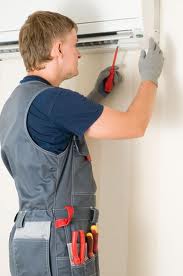The modern world offers all sorts of conveniences, most of which are easily taken for granted. You don’t think twice about powering up your smartphone to do your banking or book an airline flight. The air conditioning that cools your house is only really acknowledged when it isn’t working, and the same probably goes for all of your appliances, your primary computer and your automobile. But nothing can turn your work upside down quite like a prolonged power outage. It’s amazing how many things in life require electricity, and how powerless you can feel when those plugs stop working. In most cases a power outage will only last a couple of hours, or a day at the worst. But if there has been a major weather event or an accident at the main power plant those outages can last days or even weeks. You can prepare for this even if it never happens, so you and your family will be ready in the worst case scenario. Here are five tips for preparing and responding to a power outage at home.
When it comes to a long power outage, you have to start thinking about the basic necessities of life. You probably aren’t used to this, with everything you need a quick car ride away. But things will change if the power is down for a prolonged amount of time. So make sure you are going to be able to eat. The first step is having several coolers on hand. Without power your refrigerator will become nothing but an expensive waste of space, and coolers with ice will be the only thing keeping your perishables good to go over a prolonged amount of time. You should also have a digital thermometer on hand, so you can make sure your food is still safe to eat after several days on ice.
You should also have an emergency kit prepared for every member of your household. This is the one thing that will keep you alive if all else fails on you. It should include a first aid kit, extra batteries for your emergency devices, personal hygiene and sanitation items, copies of all of your important documents, and enough water to get you through three or four days. It’s also a good idea to keep a telephone around that has an actual cord that connects to the wall. This is a rarity in these days of the cell phone, but if you do maintain a landline you should know that a corded phone will usually work without power.
Once the outage actually occurs, response is all about maintenance. Your first thought here should be the food in your refrigerator or freezer. Remember that the stuff in there will still keep cool for quite some time if you go about things properly. So only open the doors of your fridge and freezer when you absolutely have to. Then make sure and eat food in the order that they might go bad. The perishables will only remain cold for about four hours, while the freezer will stay at a solid temperature for as long as two days. You can then move to your pantry after you’ve exhausted everything else.
A prolonged power outage can wreak havoc on your electrical gear, so you’ll need to protect everything in your house. Make sure and unplug everything that’s not necessary. If the power comes on and off abruptly it can spike and cause shorts. Make sure you switch off anything you were using when the power went out, so you’ll avoid surges when the power comes back on. Just leave one light turned on, so you’ll know when the blackout has ended.
Finally, avoid any carbon monoxide issues that could be dangerous. The carbon monoxide detector in your home always lets you know when the air conditioner freezes up or a generator is poorly ventilated, but unless you have a battery-only unit you’re going to be literally in the dark during the power outage. Make sure you don’t ever use a camp stove or propane unit inside an enclosed space. And unless the temperature is an issue, try to keep the windows open as much as possible.


